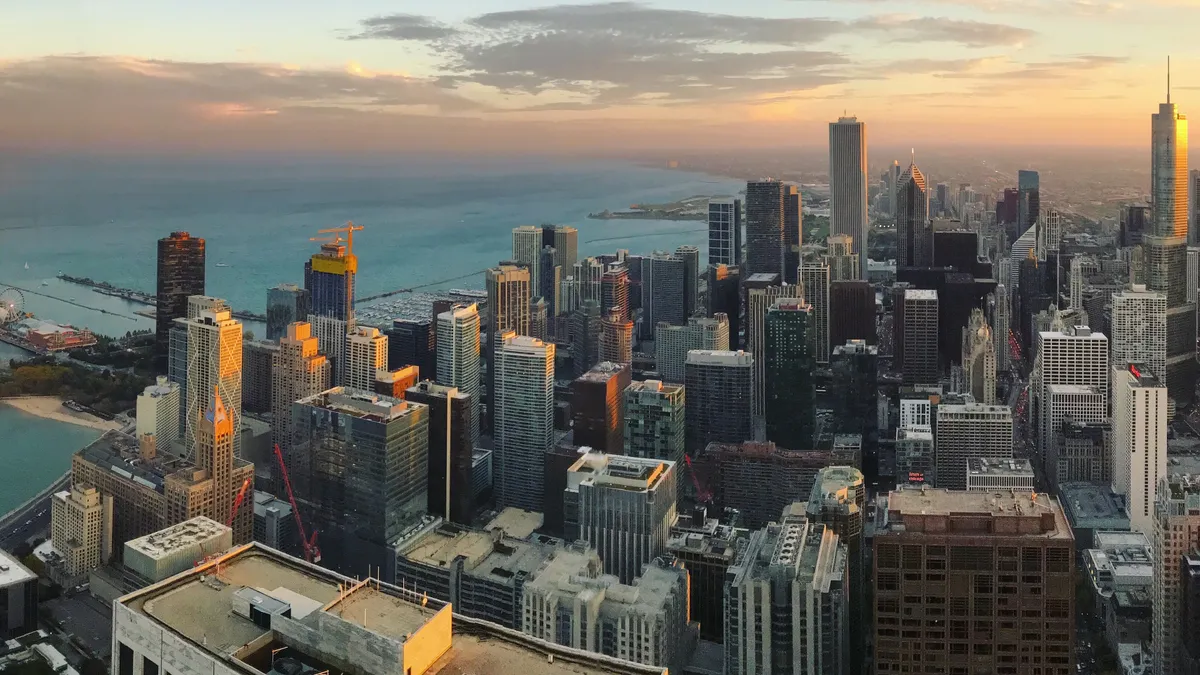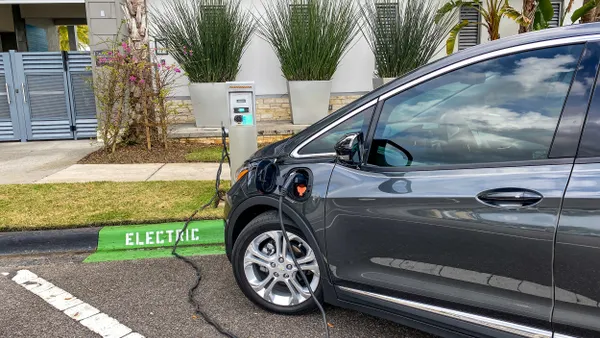Dive Brief:
- Two Chicago aldermen are pushing for regulations on app-based ride-share businesses similar those passed in New York City last week, as first reported by the Chicago Sun Times.
- Aldermen Anthony Beale and Edward Burke plan to propose a minimum wage for ride-share drivers. The pay rate would be equal to or a bit higher than the city's minimum wage — $12 an hour — after taking into account job-caused driver expenses like insurance and gas.
- The aldermen also are pursuing a driver license cap to cut down on traffic congestion which they say has been made worse by an influx of ride-share drivers.
Dive Insight:
The proposal is only a few days old, but thus far Mayor Rahm Emanuel does not appear to support an industry cap, Crain's Chicago Business reports. Emanuel offered the press a short response that noted the benefits that ride-sharing has offered Chicago residents. His press secretary pointed out that the city's ride-share taxes directly fund improvements to public transportation, including $33 million in safety improvements fully funded by a new 15-cent per ride fee. The press secretary also said that the taxi industry had a monopoly for decades and cab drivers frequently chose not to do drop-offs and pick-ups on the city's South and West Sides, areas that fight negative reputations.
Interestingly, the aldermen proposing the regulations represent portions of Chicago's South Side. That area is not as congested as the downtown areas that likely would be the most affected by legislation to cap ride-share licenses, considering that ride-share trips most often originate or terminate in dense urban areas. However, it's not surprising that these aldermen would propose the measure because it's primarily being touted as a wage increase and plenty of ride-share drivers live in the aldermen's districts. In the past, both aldermen have been critical of ride-sharing's effects on taxi businesses.
If Chicago does move forward with the proposed changes, it would be the first to ride what could be a wave of similar actions following New York's plunge into ride-share regulation. Even if they don't impose exactly the same ordinances, numerous cities are attempting to regulate ride-share businesses including by demanding trip data and imposing per-ride taxes.
Municipal leaders increasingly are finding ways to make tech disruptors less disruptive by regulating the sharing economy. New York, Boston and New Orleans are among the cities that have cracked down on short-term rental businesses like Airbnb while dozens quickly jumped to action to regulate dockless bike- and scooter-share businesses.
Industry regulation is nothing new but right now the ordinances seem to be coming in a fast and furious manner. Cities are attempting to reign in the tech industry after fielding mounting criticism for allowing digital innovators to have too much marketplace free reign, sometimes to the detriment of citizens. Uber's deadly autonomous vehicle (AV) crash in Arizona could be considered one of those examples, as could the tech industry-induced affordable housing crisis gripping the West Coast. Fear over similar incidents is prompting many advocates to pursue AV regulations before the devices gain mainstream use.
Public safety and citizen well-being is a major concern that leads both city leaders and residents to desire greater regulation. A study released last November found that 51% of city residents have mixed feelings about the sharing economy, including ride-sharing and home-sharing. At that time, 78% of cities supported growth in the sharing economy, although only 16% had formed a partnership with one of those companies, and about one-third described their relationships with sharing-economy businesses as poor or very poor. That same study found that 60% of local officials named safety as a top concern related to ride-sharing and 57% felt the same about home-sharing.
In several years, sharing economy and tech industry regulations might be so common they're not given a second thought. But for now, tech businesses and cities are battling it out quite publicly. Some have found amenable solutions and even have formed partnerships, but there's a way to go before municipalities and the tech industry find balance and reach a widespread peace. It's not surprising that progress has been relatively slow considering lawmakers can only regulate things they know and fully understand, and it takes a while for them to get up to speed on new industries enough to draft legislation. Plus, it makes sense to wait out some emerging industries that quickly die out as a fad and only pass laws to govern those that prove to have staying power.












